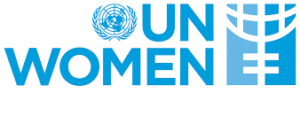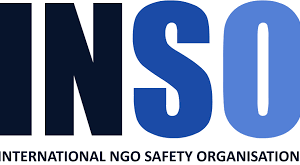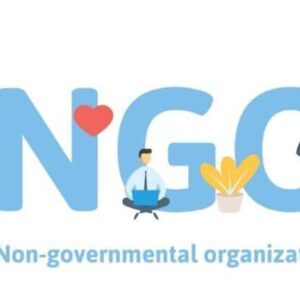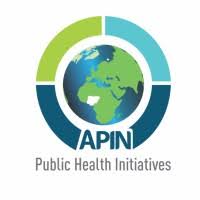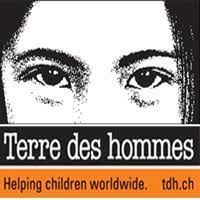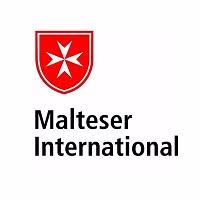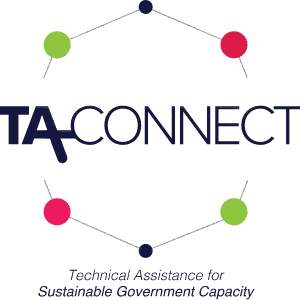National Consultant, Endline Evaluation of the Programme on Women, Peace and Security in Nigeria (Phase II) at UN Women
UN Women – In July 2010, the United nations General Assembly created UN Women, the United Nations Entity for Gender Equality and the Empowerment of Women. The creation of UN Women came about as part of the UN reform agenda, bringing together resources and mandates for greater impact. It merges and builds on the important work of four previously distinct parts of the UN system (DAW, OSAGI, INSTRAW and UNIFEM), which focused exclusively on gender equality and women’s empowerment.
We are recruiting to fill the position below:
Job Title: National Consultant, Endline Evaluation of the Programme on Women, Peace and Security in Nigeria (Phase II)
Job Identification: 25938
Location: Abuja
Employment Type: Contract
Initial Contract Duration: 49 Days
Job Function: Humanitarian Action
Job Description
Background:
- UN Women, grounded in the vision of equality enshrined in the Charter of the United Nations, works for the elimination of discrimination against women and girls; the empowerment of women; and the achievement of equality between women and men as partners and beneficiaries of development, human rights, humanitarian action and peace and security.
- The active participation of women and girls in shaping their future, based on a recognition of their dignity and capacities, is posited in several global policy frameworks as a basic condition to promote gender equality and women’s rights. SDG 16 “Peace, Justice and effective, accountable, inclusive Institutions” and SDG 5 “Gender Equality and Empower all Women and Girls” are understood and implemented together, as interdependent and synergic goals. Placing women’s rights at the center of all its efforts, UN Women leads and coordinates the United Nations system efforts and works to support Government’s national priorities t o ensure that commitments on gender equality and gender mainstreaming translate into action, promoting the empowerment of women and girls and their contribution to all areas of economic, political and social development.
- Nigeria is a vast country with a population of more than 200 million people. The country’s six geo-political zones all have a history of incessant regionalized violent conflicts. The humanitarian crisis in North-East Nigeria remains one of the world’s largest and most complex humanitarian crises. The objective of building and sustaining peace and security across the country is critical for Nigeria, which faces several security challenges, including the Boko Haram insurgency in the North East, and violence-related events such as banditry, criminal activity, and communal clashes fueled by long-standing ethnic and religious tensions in the north west and north central geopolitical zones., Gender-specific security risks and challenges confronting women and girls, including rape and other forms of sexual and gender-based violence, as well as sexual exploitation and abuse have been a notable feature of these conflict environments in Nigeria, particularly due to displacements and the critical conditions within Internally Displaced Person (IDP) camps.
- The United Nations Security Council Resolution (UNSCR) 1325 on Women, Peace and Security (WPS) was unanimously adopted on 31 October 2000 in recognition of the disproportionate impact of conflict on women and girls and need to mainstream gender in peace and security. In line with effort to localise the global policy framework and address context specific WPS issues in Nigeria, the government of Nigeria has developed and implemented two generations National Action Plan (NAP)- the first and second NAP in 2013 and 2017, respectively through the Federal Ministry of Women Affairs. The ground-breaking Resolution 1325 builds on a body of international human rights laws and legal instruments. Since 2013, the localization of the NAP has gained support by stakeholders, hence, the development and implementation of State Action Plans (SAPs) in 16 states and 22 Local Action Plans (LAPs); development and implementation of gender policies for the armed forces, NSCDC, and Nigeria Police Force; as well as establishment of functional WPS structures, amongst other achievements. Despite these achievements, substantial gaps remain. The implementation challenges/gaps and lesson learnt identified included legislative gaps, weak engagement with legislature, limited coordination, insufficient funding, as well as the need for improved capacity building, compliance monitoring, multi stakeholder partnership and enhanced oversight to improve the effectiveness of third NAP and advance WPS agenda in Nigeria. In addition to this, women remain poorly represented in formal peace and security processes despite widespread insecurity and complex conflict dynamics including emerging WPS issues.
Programme on Women, Peace, and Security (Phase II, 2022-2024)
- Building on Phase I, Phase II aims to enhance women’s participation in peace and security processes across Abuja, Adamawa, Bauchi, Benue, Gombe, Kaduna, and Plateau states. The project strengthens policy frameworks, coordination, and oversight while supporting Nigeria’s commitment to UNSCR 1325, SDGs, and regional gender equality frameworks. The overall objective of the project is to attain a more peaceful and gender-equal society, with the following outcomes.
Project Outcomes:
- Outcome 1: Government institutions at Federal and State levels are strengthened to provide strategic leadership and effectively coordinate the development and localization of Nigeria’s 3rd National Action Plan (NAP) and updated State Level Action Plans on WPS.
- Outcome 2: Representation and leadership of Women Peacebuilding Networks and WPS advocates in conflict prevention and mediation are increased.
- Outcome 3: State-level structures sustained to effectively lead on integration and accountability for women, peace and security.
- Outcome 4: Representation and participation of women in political leadership is strengthened
Purpose of the Evaluation:
- The purpose of this end-line evaluation is to assess the overall achievements, impact, and sustainability of the project. It will determine the extent to which the project’s objectives were achieved, document lessons learned and provide recommendations to inform future programming. This evaluation is critical in ensuring accountability to stakeholders and promoting organizational learning.
Targeted Users of the Evaluation:
- The primary users of this evaluation include UN Women Nigeria Country Office, the Government of Norway (donor), Federal and State Ministries of Women Affairs, security institutions, implementing partners, civil society organizations, and community-based organizations.
- The findings will also benefit stakeholders involved in Women, Peace, and Security programming.
Scope of the Evaluation
Timeframe: The evaluation will cover the entire duration of Phase II (2022-2024).
- Stakeholders: The evaluation will engage key government partners, security institutions, implementing partners, women-led organizations, community-based structures and the donor.
- Geographical coverage: Abuja, Kaduna and Plateau (Primary states); and Gombe, Benue, Adamawa and Bauchi States (Secondary states)
- Supervision of the evaluation: Monitoring, Evaluation, and Reporting Specialist/ WCARO Monitoring and Reporting Analyst. The National Consultant will undertake the tasks outlined below. To facilitate the delivery of the above outputs, UN Women will provide the consultant with available documents and relevant templates.
Expected Deliverables
The consultant is responsible for the following deliverables:
- Inception report outlining the refined scope of the work, a detailed outline of the evaluation design and methodology, evaluation questions, and criteria for the approach for in-depth desk review and field work to be conducted in the data collection phase. The report will include an evaluation matrix and a detailed work plan.
- Facilitate participatory meetings with stakeholders, partners, and selected project beneficiaries at the national level and target states to collect relevant data, and report generated.
- Presentation of preliminary findings report (conducted at the national level and target states). A presentation detailing the emerging findings of the review will be shared with UN Women and key partners for feedback. The revised presentation will be delivered to key stakeholders for comments and validation. The consultant will address the feedback received in the draft report.
- Draft evaluation report which will be shared with UN Women for initial feedback.
Requirements
Education and Certification:
- Advanced University degree (master’s degree or equivalent) in a relevant social science (gender studies, business administration, international development, human rights, political science, international relations, peace and conflict studies or any related field).
Experience:
- At least 7 years of work experience in the conducting evaluations, including for WPS/Gender Peace and Security/Security Sector programming or other related fields.
- Having conducted evaluations in Nigeria
- Strong technical competences in gender and women’s empowerment agenda.
- Sound record in designing and leading evaluations; gender-sensitive evaluation certification or experience preferred.
- Proven experience in conducting gender-responsive evaluation.
- Detailed knowledge and familiarity of the UN, its programming processes and coordination mechanisms.
- Extensive knowledge of, and experience in applying, qualitative and quantitative evaluation methods; In-depth experience and excellent knowledge of results-based management
- Strong process management skills, including facilitation.
- Strong oral and writing skills.
- Excellent written and oral communication skills in English.
Application Closing Date
29th May, 2025.
How to Apply
Interested and qualified candidates should
Click here to apply online
